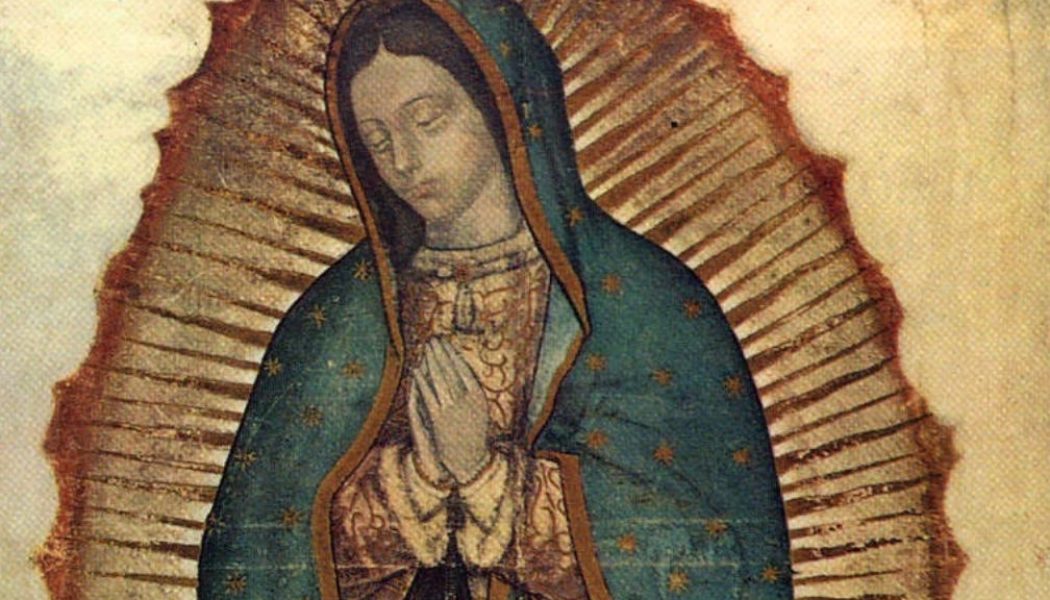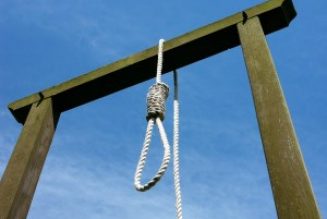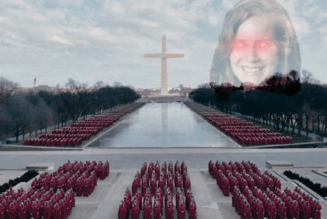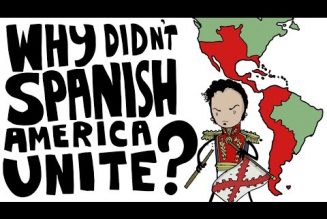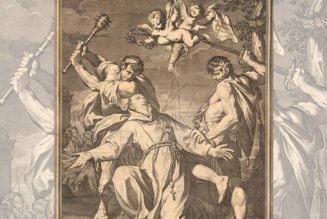Hey everybody,
Today is the feast of Our Lady of Guadalupe, and you’re reading The Tuesday Pillar Post.
From where I stand, there is very little that needs to be said about the Empress of the Americas. She is our queen and our patroness, the Church says, and the Lady who converted a continent, by revealing herself to St. Juan Diego Cuauhtlatoatzin, and by giving him roses in winter.
Because she is the “Patroness of the Americas,” she’s always been at the center of discussion surrounding the mission of the Church on our American continents —as she was exactly 10 years ago, when bishops, priests, religious, and lay leaders gathered in Mexico City for a conference on Our Lady of Guadalupe and the “new evangelization.”
The keynote at the conference was then-Archbishop of Philadelphia Charles Chaput.
His was a short speech I think about a lot. And on the feast of Our Lady of Guadalupe, 10 years later, I think we’d all do well to reflect on what he said.
Speaking to bishops, Chaput said that among the problems facing the Church in America, one of them is “we ourselves” — him, and his brother bishops.
“The Church ordained us to lead,” he said. “Therefore we’re responsible.”
“Mass attendance and sacramental practice have been declining for decades in many North American dioceses, well before the clergy abuse crisis of recent years. And I do know that millions of Catholics in my country and Canada are baptized and even catechized, but they don’t know Jesus Christ—and therefore, for many of them, the language of Catholic Scripture, Catholic worship, and Catholic moral reasoning is incomprehensible.”
“Again, we bishops are responsible —not for every failure; not for every mistake; and not for things over which we have no influence or control. But we do have the duty to examine ourselves and our work honestly; to correct each other frankly; to reform our hearts; and to give our lives zealously, completely, without counting the cost, to serving God and our people.”
Speaking to all believers, not only bishops, Chaput added:
“In our day, God calls us to build a new ‘New World’—a world of mercy, justice, patience, and love. A new ‘New World’ founded on the words of his Son: ‘Blessed are those who hunger and thirst for righteousness, for they shall be satisfied. Blessed are the merciful, for they shall obtain mercy. Blessed are the pure in heart, for they shall see God. Blessed are the peacemakers, for they shall be called sons of God. Blessed are those who are persecuted for righteousness’ sake, for theirs is the kingdom of heaven.’”
“The biggest obstacle to that new ‘New World’ is not the enemies who hate us, and not the unbelievers who revile the Church and the Gospel. The biggest obstacle is the Old World that lives in our own hearts, even in those of us who are bishops, and maybe especially in some of us who are bishops : our pride, our cowardice, our lack of trust in the promises of God.”
“Jesus said, ‘Behold, I make all things new.’ We need to make those words come alive in the flesh and blood of our own lives; and in the passion of our own Christian witness.”
What Chaput said to bishops applies to them, certainly. But it applies to each one of us, in accord with our own vocations, and our call to live for the Gospel. It’s worth reflecting on.
It’s a powerful little speech. Go ahead and read the whole thing.
May Our Lady of Guadalupe pray for us.
And — under her mantle — may we take seriously the mission of the Church entrusted to each one of us.
The news
Ok, there’s a lot of news, much of it difficult. So here it is:
More to the point, Gregory said that priests had created false demand for the “extraordinary form” by imposing it on unsuspecting parishes.
“So I think that the Holy Father is right to say: ‘Deal with the priests,’” he said last Wednesday.
Well, those remarks got a lot of pushback from priests who say they learned older liturgical rubrics because Catholics asked them to — and who weren’t quite sure why Gregory views their ministry as something to “deal with.”
In an analysis last week, I asked whether the split over Gregory’s remarks exemplifies recent research from Catholic University of America — especially about what factors can predict levels of trust — or distrust — between priests and their bishops.
If that sounds interesting to you, read about it here.
—
Early Sunday morning, a Nebraska priest died after he was stabbed multiple times by a man who broke into his parish rectory.
The priest had a troubled past — which The Pillar has covered in news reports before. In 2007, he pled guilty to charges of stealing more than $100,000 from the parish he led, and was sentenced to probation. And two years ago, his brother — also an Omaha priest — pleaded guilty to stealing hundreds of thousands from an elderly priest.
But Nebraska law enforcement say there is no indication his death is related to that complicated past — and in Fort Calhoun, Nebraska, Catholics are mourning Fr. Stephen Gutgsell as the pastor they knew.
Read all about it, and pray for the repose of Fr. Stephen Gutgsell.
“Living courageously, persevering through adversity and discovering the ultimate truth in God are hallmarks of a UD education that we are excited and proud to share with the world through The Quest.” – University of Dallas President Jonathan J. Sanford
Start watching The Quest, a free 10-episode video series produced by our sponsor, the University of Dallas, at quest.udallas.edu/pillar.
Priests in the Steubenville diocese told me yesterday that they continue to believe their diocese is in better fiscal and practical health than it gets credit for — with some saying that former Bishop Jeff Monforton unfairly assessed the diocese to be unsustainable.
But sources closer to the Vatican say that there is continued Vatican interest in moving the merger forward, and that the apostolic nuncio urged the resumption of conversation about the subject.
But Steubenville priests told me that whatever happens, merger2.0 feels different to them, largely because they trust that when apostolic administrator Bishop Paul Bradley says there is no predetermined outcome, he’s telling the truth — and they expect they’ll be fairly consulted before decisions are made.
There will likely be a lot of prospective U.S. diocesan mergers in the next few years — so paying attention to this once could be instructive for a lot of parts of the country.
Jackson is likely to get five years for the crime when he’s sentenced Wednesday, as his legal team and prosecutors agree on that sentencing request, seemingly as part of a plea bargain.
But Jackson’s sentencing memo was revelatory.
The priest — long believed by many traditionalist Catholics to be innocent — admitted his guilt, apologized, and told the judge he had an addiction to child pornography. He also said that he had been sexually abused himself as a child, which contributed to his “vile” conduct.
Jackson included character references along with his memo, including some undated letters from people who wrote that they thought the priest was innocent.
Now, it’s standard to include letters from character witnesses in a sentencing memo. But there is a point worth noting about those letters — two of the letter writers, one of them an FSSP priest, told The Pillar they wrote those letters months ago, and no longer believe Jackson is innocent.
One person, Jackson’s former secretary, said she even wrote a new letter this month acknowledging Jackson’s guilt, which was not filed in court by Jackson’s legal team.
This is noteworthy because of the widespread movement to argue for Jackson’s innocence among many Catholics, even after he pled guilty. Some of those closest to him — those who helped fuel that movement — now say they accept the priest’s guilt.
—
Now on to Germany:
Despite suggestions to the contrary, Germany has not waited significantly longer for new bishops than other European countries. And there are some unusual factors, such as the country’s complex concordat system and the synodal way’s demand for greater lay involvement in appointments, that may be lengthening the appointment process in Germany.
Read all about that, right here.
Next, The Pillar’s Luke Coppen asked an interesting question in recent days, in light of the Germany “synodal path” and other recent controversies: Just how deeply split are Germany’s bishops?
In an analysis Friday, Luke assessed Cardinal Rainer Woelki’s recent assessment that “our Church in Germany is more polarized than ever.”
So, is it?
Well, maybe.
—
Finally in the news, some context for the public accountability issues we cover here at The Pillar.
Some of you know that a verdict is expected this week in the Vatican’s sprawling financial trial, in which Cardinal Angelo Becciu and others are facing charges of embezzlement, fraud, abuse of office, and other financial crimes. Whatever the outcome, the very existence of the case — the fact that there has been a criminal trial at all — has been taken as a sign of the pope’s willingness to see financial reforms at the Vatican, even if that willingness has seemed sometimes to waver.
But days ahead of that verdict, the pope met with the staff of the Vatican’s auditor general’s office — this is the office charged with ensuring that Vatican departments and personnel follow the basic financial norms and regulations of the Apostolic See.
Yes, he said, they should be “extremely vigilant” against “the lure of corruption,” and create appropriate safeguards.
But also, they should remember that publicly-known financial scandals “serve more to fill the pages of the newspapers than to correct behavior in depth.”
Those remarks have garnered some attention.
While the pope has done a lot to affect financial reform — including the trial itself — it’s hard to imagine other contexts in which internal watchdogs are seemingly told by the boss: “yes, do your job,” but also, “don’t create too many scandals.”
Of course, it is true that indulging in the unfettered spread of lurid or lascivious details is inappropriate, and scarcely necessary. Prudent discretion regarding appropriate disclosure of details is, in that sense, needed, and should be a hallmark of Christian reforming .
But even in the context of a Vatican awash in financial scandal, the pope seemed to some to be expressing a broader concern: That widespread public accountability does not actually effect reform, and should be sometimes avoided.
That disposition has proven in the past to be counterproductive, and an impediment to authentic reform. It ties the hands of the people who supposedly have license to assess things objectively, absent fear of repercussion, and absent favoritism, partisanship, or preferential treatment.
“Give us accountability,” in short, “but not too much.”
In a Christian perspective, reform comes from looking at a thing as it really is, recognizing where it lacks justice, or integrity, or truth, and giving them to Christ for healing — while making the effort to cooperate in God’s grace on that front.
We’ve learned in the Church that public accountability is a necessary component of seeing things as they really are, because public response helps to fill in for blind spots that have been manifestly evident in clerical or ecclesiastical culture.
The pope’s remarks this week seemed to suggest that a commitment to that kind of transparency is not yet wholly resolute inside the Vatican. Perhaps that’s not what he meant — but the handling of recent cases in the Vatican would suggest otherwise.
So where does that leave us, if we care about the reform of the Church?
Well, it means that at the Holy See, public accountability will need to come without institutional self-disclosure. And, fortunately, that’s what The Pillar does best.
As one bishop texted me yesterday: “This is why we need The Pillar to be The Pillar.”
If you want The Pillar to keep being The Pillar, be a subscriber:
If you want to read about what the pope said, read it here.
—
Discipleship of love
I’ve been following this week a legal battle in Texas that began with a pregnant woman seeking an abortion for a baby diagnosed with trisomy-18. Lamentably, even as the case wound through the courts, the woman traveled to another state and had an abortion. If you would, pray for her, and for her family.
Of course, it’s not my intention to discuss at length this particular woman, or her particular pregnancy. I haven’t read the court filings directly, and I can’t speak to the specifics of her case.
But the prominence of the case has ignited discussion among many Americans about the quality of life for people with profound genetic disabilities, like trisomy-18, and the quality of life for their families.
And that, I can speak to.
I don’t know anyone with trisomy-18, a rare genetic disorder in which people have three copies of their 18th chromosome, and often die within two weeks of being born. I can’t speak directly to the particular crosses their parents’ experience. I do know that when children with trisomy-18 are born into loving families, they usually spend the whole of their lifetimes being loved, and cherished, and welcomed. That experience defines their quality of life, not the number of weeks or months they actually live.
Still, in the course of these discussions, inevitably the “quality of life” conversation turns toward people with other genetic disabilities, with some abortion advocates arguing no one should subject a child or his family to the lifetime of suffering that comes with significant intellectual disabilities and other health problems.
Longtime readers know I have two children with trisomy-21, Down syndrome, and that I write about them often. Perhaps I write about them too much, I don’t know.
We celebrated my daughter Pia’s 11th birthday on Saturday. We’ll celebrate my son Max’s 12th birthday on Sunday.
There are people who argue that my children, who have suffered cancer, and cardiac arrest, and cognitive delay, and motor + speech delay, and persistent dysregulation, and — recently, to our surprise — alopecia, have lives so marked by suffering that they are not worth living. And some of those people argue that we’d be better off without suffering alongside those children.
There are also people who — with good intentions — argue that people like my children have lives that are continuously joyful, and that they, at all times, bring happiness to everyone around them.
I disagree with all of those arguments.
My children are unusually joyful, and they make the people who know them happy. Their classmates and teachers love them. They are quasi-celebrities at their school — and sometimes that goes to their heads. They are happy, and they think their lives are worth living.
Also, my children suffer more than the average person. They experience unhappiness — frustration, insecurity, loneliness, fear. And they do demand a great deal from the people who love them most. Our youngest son carries the cross of siblings who need a lot, even from him, and who need a lot of attention from his mom and dad. Kate and I carry the cross of children who need constant patience, who need a great deal of help, and emotional support, and presence, to complete the most routine daily tasks.
Those things have had real and challenging effect on our marriage, on our own emotional health, and on our family harmony. Suffering is a real thing, as most of you know.
So the well-meaning idea that it’s all sunshine and rainbows misses the mark.
But here’s what I know now, that I didn’t know when they were born. Here’s what I’ve learned, largely through the wisdom and holiness of my wife:
It is good that these children require much more of me than I think I have to give. It is good that loving them requires capacity beyond my reserves.
These people require that I cast out into the deep — that in patience, and presence, and assistance, I go beyond where I wish to go, and beyond even where I can go, on my own.
Because here’s the thing: Out there in the deep, beyond my own self-giving, that’s where grace is. That’s where I’ve found something that seems like joy.
Out there in the deep — that’s where the Lord is.
Which means that’s where we can find the meaning of our lives.
And listen, all of us are called into some kind of “deep” — something out there beyond our own capacity for self-gift. This one just happens to be mine.
It seems to me that when our culture talks about “quality of life,” this is what we should be talking about —The quality of life we experience in the demanding discipleship of love.
It is a fool’s errand to pretend that a life of love will not prove demanding. It will. Whether that means pouring ourselves out for children, or aging parents, or the sick and suffering, or the parish — a life of love demands from us more than we actually have.
It demands that we rely on Love himself. But here’s the good news: Relying on him means also that we know him. Depending on him means that we are his, and he is ours. That we become a part of his body.
That’s where we get a real “quality of life.” Out in the deep, with the Lord. That’s where any of us should want to be.
Not without suffering, but through it. That’s where the grace is.
—
Again, blessed feast of the Guadalupaña. If you want to read about a Canadian Ukrainian bishop who loves Nuestra Senora, you can do that right here.
Meanwhile, please be assured of our prayers. Please pray for us, we need it. Also, if you would, say a prayer for my dad Daniel — he turns 68 today.
We are greatly blessed.
Yours in Christ,
JD Flynn
editor-in-chief
The Pillar
“Living courageously, persevering through adversity and discovering the ultimate truth in God are hallmarks of a UD education that we are excited and proud to share with the world through The Quest.” – University of Dallas President Jonathan J. Sanford
Start watching The Quest, a free 10-episode video series produced by our sponsor, the University of Dallas, at quest.udallas.edu/pillar.
Comments 24
Services Marketplace – Listings, Bookings & Reviews
